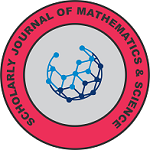Dr. Peter Attafuah (PhD)
Education Director, Bono Region | Ghana Education Service
Email: drattafuah@gmail.com
Abstract
This study was designed to find out the types of feedback chemistry teachers give to their students, introduce FAST (frequent, accurate, specific and timely) feedback method by teaching chemical bonding and determine its effect on students learning. A case study design using the action research approach was adopted for the study. A sample of 865 first year chemistry students and 20 chemistry teachers (n=885) selected from senior high schools in the Eastern Region of Ghana responded to the instruments. Out of this, 795 students and 20 teachers were involved in the pre-intervention study and 70 students were involved in the intervention and post-intervention study. At the pre-intervention stage data was collected using questionnaires, interviews, and checklist for the observation of chemistry lessons and students’ exercise books. Science educators examined the instruments and modifications were made. The instruments were found to be reliable because alpha values above 0.75 were obtained after the pilot study. At the intervention and post-intervention stage, data was collected with worksheets. The results were analysed using SPSS. Findings from the research revealed that the feedback given by chemistry teachers was neither frequent nor accurate. Additionally, it was found out that the feedback was neither specific nor timely. Path analysis of the correlations of the attributes of FAST feedback method for both teachers and students confirmed this. When FAST feedback method was employed in teaching chemical bonding positive results were obtained. The students became interested and participated actively in the lessons. Students also scored high marks (above 75%) in all the exercises. The FAST feedback method facilitated the diagnoses of the conceptual difficulties of the students with respect to chemical bonding.
Keywords: Fast Feedback Method, Chemistry Classrooms, Chemical Bonding, Students’ Learning

